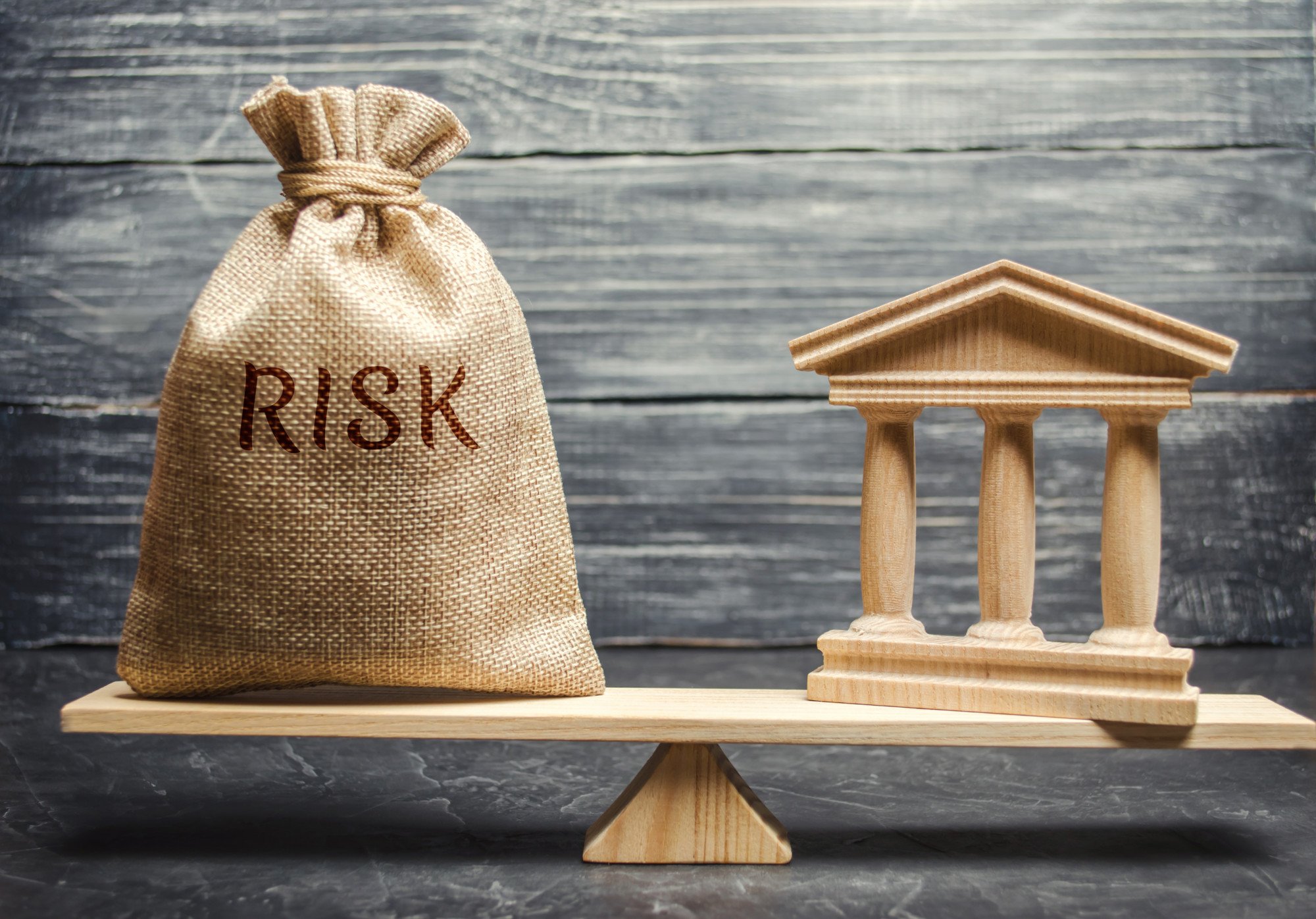
Does your business run off a subscription-based model? Do you take in a large influx of expensive transactions? You might be classified as a high-risk merchant.
Being a high-risk business isn’t the end of the world, but it will make it more difficult to find payment processing options. This is especially true if you have a low personal credit score. Many account providers will turn you down due to fear of chargebacks and other negative reproductions.
Your business model is only one factor that will deter account providers. Check out this guide to learn for sure if you’re running a high-risk business.
A high-risk business is one that credit card processing services and financial institutions deem likely to fail. While any company in any industry can be labeled as high risk, certain ones carry a more notorious reputation than others.
A high-risk business can still be successful, but it won’t have as many payment processing options as others. High-risk merchant account service providers charge these companies a lot more.
They have to meet stricter compliance requirements. Since these companies pose a higher risk for financial providers, they may have to put a portion of their profits into a rolling reserve.
While the gambling and adult entertainment industries hold the highest record for being high-risk, there are others.
Most of these companies process expensive or high-volume transactions that are liable to chargebacks.
In the case of subscription boxes and gyms, people often cancel their memberships during times of economic uncertainty.
So, how do you tell if you have a high-risk merchant account? Again, the determining factor usually lies with your industry, but it’s not the only thing financial institutions consider.
They also look at your chargeback rate, personal credit score, transactions, sales model, and operations.
One of the most common reasons why banks will label a company as a high-risk business is its chargeback rate.
Loan providers and payment processing services will determine if your company has a high chargeback rate by analyzing the behavior of your usual customers. If your employees spend most of their workday processing returns, there’s a good chance that you’re running a high-risk business.
The best way to reduce your chargeback rate is by implementing a strict return policy. This will make customers second guess investing in a product they either can’t or shouldn’t afford.
Again, you may be considered high risk due to your industry. If you sell adult entertainment or drug paraphilia, some lenders may refuse to work with you for guilt by association.
Since the public perception of businesses of your nature is negative, lenders may not want to be seen supporting you.
If your company is located overseas, but you sell to customers in the US, there’s a good chance that you’ve been flagged as high risk. This is especially true if your country is notorious for credit card fraud.
Lenders will also look at the banking regulations in your country. If they’re relatively relaxed, that will be reason enough to consider you high risk.
There are some businesses that have questionable sales models. The ones that most people are wary of are MLMs. Half of them are a scam and the other half are questionable at best.
Even if your MLM is 100% legit, credit card processing companies may be hesitant to work with you.
Before you open a business, you’ll need to work on your credit score. Having good credit will increase the chances of you getting approved for a loan that will help you get your startup off the ground.
You’ll also be less likely to get flagged as a high-risk merchant account. Business owners with low credit scores are thought to be irresponsible with their money. Payment processing services will assume they handle their business finances with the same care that they handle their own.
Furniture stores, travel companies, and electronics stores all have one thing in common. They process expensive transactions every day.
After buying a new gaming console or couch, buyer’s remorse may set in. The customer will realize that they shouldn’t have bought the new item and return it. Too many chargebacks will result in the company getting flagged as a high-risk business.
Large doesn’t only mean expensive. Companies that process a high volume of transactions every day can also be considered high risk.
Subscription businesses are their own special category. They’re almost always seen as high-risk.
Let’s say that you offer a month-long free trial. Chances are a large number of customers will forget to cancel their free trial, resulting in chargebacks and account suspensions.
Being considered a high-risk merchant can feel scary, but it isn’t the end of the world. While you won’t have as many payment processing and loan options, you’ll still have some.
We at First Financial believe that all merchants should have the chance for success. That’s why we approve almost 95% of all businesses, even those that are considered to be high-risk.
We offer plenty of secure online processing and debit card payment options. Go here to fill out a merchant services request form.
 Long gone are the days when cash was the preferred form of payment. Around 33% of consumers use their credit cards to make a purchase. 38% of people opt to use their debit cards.
Long gone are the days when cash was the preferred form of payment. Around 33% of consumers use their credit cards to make a purchase. 38% of people opt to use their debit cards.
If you’re running an e-commerce business and accept credit/debit cards, you might’ve come across the term “high-risk merchant.” It can be intimidating if you discover that your company has been labeled as one. There are many reasons why a business selling a certain type of product might be considered a high-risk merchant.
This guide will discuss everything you need to know about high-risk merchants. We’ll also talk about what high-risk merchant accounts are and if your business needs one.
A high-risk merchant is a physical or online business that sells products that fall into specific categories. These types of companies have a higher likelihood of fraud or chargebacks. Online businesses can fall into this category because they can’t physically see their customer’s credit cards and verify their identity.
Some industries that fall into the high-risk category include:
Many characteristics might label a business as high-risk. In addition to the qualities we mentioned above, some other features include:
There isn’t a universal standard or set of rules when it comes to determining if a company is high-risk. Each payment processor and bank abides by its own set of standards.
High-risk merchant accounts are a type of bank account that’s set up by a payment processor. These accounts enable businesses to accept debit and credit cards even if they’re considered high-risk.
The money that gets collected during a transaction, minus processing fees, gets transferred to the business’s checking account. It typically takes 24 to 48 hours for the merchant to receive the funds.
High-risk merchant processing gives these companies the ability to accept debit and credit cards. If you fall into this category, you should explore payment processors that offer high-risk merchant services.
High-risk businesses have a higher likelihood of their application getting denied by banks or payment processors. However, some organizations have more relaxed standards when it comes to accepting businesses. They might also be more willing to work with you by enforcing additional measures low-risk businesses don’t experience.
Payment processors and banks have many ways they can reduce their risk when working with these types of companies. There are also big differences between regular and high-risk merchant accounts.
Some payment processing companies might charge around 0.3% for a standard business. That fee could be as high as 1.5% for a high-risk merchant. It’s important to understand their fees before you partner with a payment processor.
A payment processor or bank might ask for additional information when you apply for an account. They’ll want to use this data to look at your past finances. The bank might be analyzing your risk profile.
Other details they might want to review include:
Be as transparent as possible with the company. Show how much money you have moving through your business. Good cash flow can improve your approval chances.
Another thing to consider is that the payment processor might keep a reserve of a certain amount of cash for your business. Examples of this include:
You should get as many details about their cash reserve requirements before you sign a contract. You don’t want to have to provide a large amount of cash upfront if you’re not able to.
Some credit card processing companies might cap how many transactions you have. This is because they believe that they might encounter more risk if you have a high volume of transactions.
High-risk merchants might also have to pay chargeback fees when they process a refund. These fees may be higher to offset the risks the processor encounters with excessive chargebacks. These fees can range from $20 to even $100 each.
Don’t get discouraged if you’re considered a high-risk merchant. There are many things you can do to keep your business in good standing.
Many e-commerce businesses deal with a lot of chargebacks. This is especially true if you sell clothing or shoes.
Make sure your product description matches what you’re selling. Include a detailed size chart to ensure your customers purchase the right size. Reduce your chargebacks so you can lower the related fees.
Many banks and payment processors want to see that you have healthy cash levels. Having a high amount of cash on hand shows them that you’re financially stable. You’ll increase your chances of getting approved at a low fee rate.
As we mentioned earlier, being transparent is key. Give the payment processor all the documents and information they need during the application process. Doing so will show them that you’re a credible business that they’ll want to work with.
Being labeled as a high-risk merchant doesn’t have to be the kiss of death for your business. Being proactive and doing research will ensure you get approved by a reputable payment processing company. Look for payment processors that work with businesses like yours to ensure you receive tailored services.
First Financial works with high-risk merchants, providing them with financial and payment processing solutions. Should you need help applying for a loan or other banking matter, we’re here to assist. Contact us to learn more about our services.
First Financial® | Corporate Headquarters | Mailing Address: First Financial 8880 Rio San Diego Dr. 8th Floor #2011 San Diego, CA 92108
Client Service Center: Main: 1-800-315-7791 Fax: 1-800-215-0217
First Financial® & First Financial Online® are Federally Registered Trademarks
©1996-2024 First Financial®, All Rights Reserved. All other products and company names are trademarks of their respective companies. First Financial® does not provide any investment, financial, tax, legal or other professional advice. We recommend that you consult with financial and tax advisors to understand the risks and consequences of buying, selling and holding Bitcoin.*Not all lenders can provide up to $5,000.